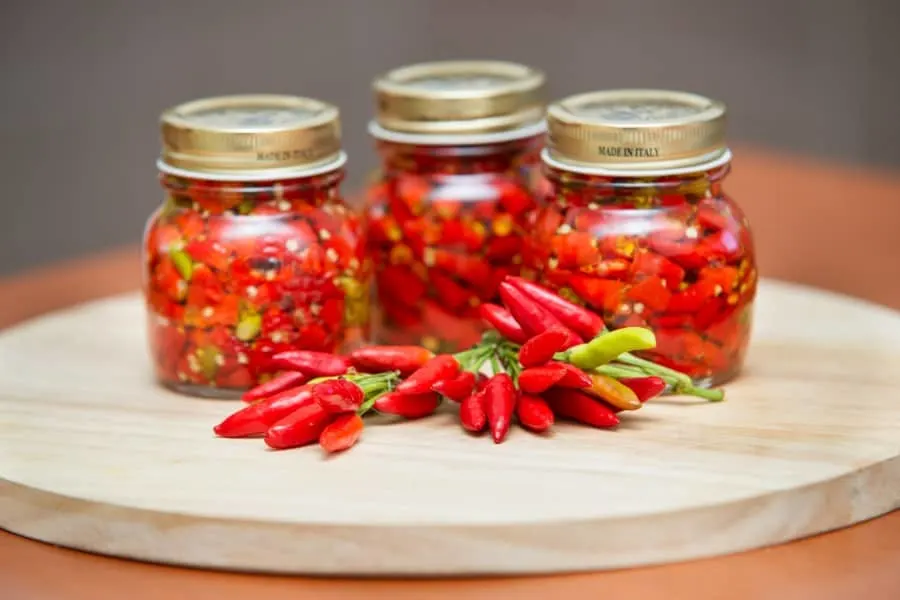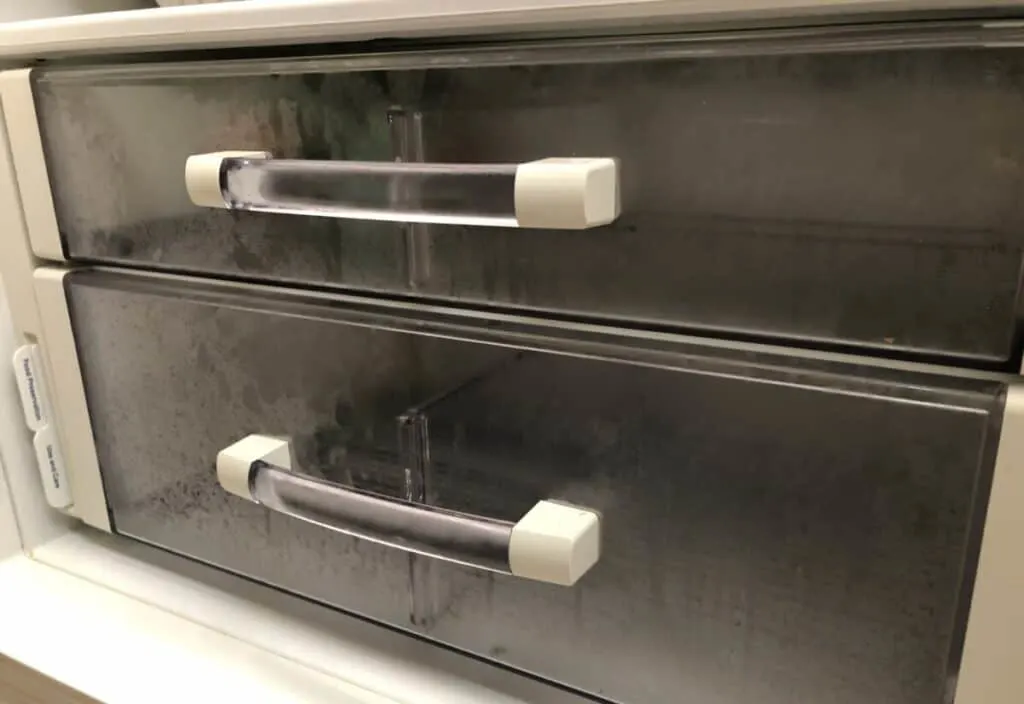Peppers are not only delicious, but they provide many nutritional benefits, and have a wide range of uses. If there is any drawback to peppers, it is that some people find they are unable to keep them fresh for as long as they would like to. So how do you keep peppers fresh for longer?
To keep peppers fresh longer, select the freshest looking peppers when shopping, do not wash them until ready to use, use breathable produce bags when storing, and keep them in the crisper drawer of your fridge. You may also freeze, can, or dehydrate your peppers to increase their shelf life.
In this article, we will go over these seven important tips in detail to keep your peppers fresh for longer.

Pick the Freshest Looking Peppers
The first tip on this list for keeping your peppers fresh longer begins in the grocery store before you even get your peppers home.
While some shoppers will take the time to thoroughly look over their peppers and examine them for imperfections before putting them into their cart or bag, others are more nonchalant about which peppers they pick up.
Although still fresh, peppers have already started to age while still on the grocery store’s shelf. A quick visual inspection is sufficient to tell which peppers are the freshest.
Look and feel your peppers over for characteristics like soft spots, discoloration, bruises, wrinkles, and general defects.
The peppers you choose for purchase should be firm, colorful, and relatively symmetrical. Picking the most youthful, good-looking peppers will help ensure you aren’t picking an older pepper which will spoil faster.
Do Not Wash Your Peppers Until You Are Going to Use Them
The next tip is not to wash your peppers until right before you are about to use them.
Most people will rinse and wash their peppers under water to cleanse them of chemicals, germs, and dirt. This is a good thing, and we highly recommend you do this, but timing is everything when it comes to preserving your peppers’ freshness.
Some individuals may get the idea that they can save time by washing all their peppers at once before storing them, but we don’t recommend this.
Washing your peppers and then putting them away wet will encourage bacteria to grow on the surface, accelerating the aging process and lessening the time that they can retain their freshness.
Even if you dry your peppers completely, washing peppers before you are ready to use them will still make them vulnerable to bacteria because you are washing off their biofilm, which protects the produce from bacteria.
Use Produce Bags When Storing Your Peppers
If you typically store your peppers loose in the fridge, i.e., not in a produce bag, you may find that they don’t stay fresh as long as you would like them to.
Storing your peppers in a breathable produce bag will allow them to get proper air circulation and prevent excessive moisture from softening and speeding up the peppers’ aging process.
Peppers stored in overly moist environments, such as sealed, non-breathable plastic bags, will become wet and squishy faster and lose their crunchy freshness.
If you are looking to purchase 100 percent eco-friendly, reusable produce bags at a fair price, consider the Cottify Organic Cotton Produce Bags.

Use the Crisper or Vegetable Drawer When Refrigerating Your Peppers
Crisper drawers are designed specifically for extending the life of your fruits and vegetables. They accomplish this by allowing for ventilation controls and reducing the moisture and humidity within the drawer, creating a cool, dry, and ideal environment in which your peppers can stay fresh for as long as possible.
If you leave your peppers in the main compartment of your refrigerator, you are exposing them to higher levels of precipitation emitted from other items in the fridge.
Using a crisper drawer isolates your peppers in a controlled air environment that is optimal for preserving their integrity.
The last thing to note on this point is not to combine fruits and vegetables in your crisper drawer. The moisture in the fruit will age your vegetables quicker, so it’s best to separate out your fruits and vegetables.
Freeze Your Peppers
If you know that you will not have enough time to use your peppers before they begin to go bad, you can freeze them instead of throwing them out.
The remarkable thing about peppers is that they can last up to a year in the freezer and retain most of their freshness when properly frozen.
The process of freezing peppers is simple and as follows:
- For Bell peppers, cut your peppers into four pieces, removing the core, the seeds, and the stem. You can keep smaller peppers whole.
- (Optional, and good tip for Bell peppers): Lay your peppers out on a flat baking sheet and place them into the freezer until they become hard and solid.
- Take your peppers off the tray, place them into a freezer bag, and place them back into the freezer for storage.
When you want to use them, simply remove your peppers from the freezer, let them stand until thawed, and then rinse them under cool water.
Canning Your Peppers
Another great way to preserve peppers and keep them fresh for long periods is to can them.
Many people refrain from canning peppers because they feel that the process is complicated. We are here to show you that it isn’t, and anyone can do it at home with a bit of effort.
To can your peppers:
- Prepare the jars and lids you will store them in by sanitizing them. The sanitization of the jars and lids is the most important step of the process because if not done properly, it will spoil your peppers and potentially make you sick. Clean the jars in the dishwasher or with soap and water. Place the jars in a canner or a large stockpot and cover them with water. Bring the water to a boil and boil the jars for 15 minutes. A few minutes before it comes time to fill them, you can place them on a kitchen towel (or non-stone surface).
- Cut up your peppers into slices and wash them nicely.
- Peel the skin off the peppers. To do this, heat them in a pan or oven until the skin blisters, then remove them from the heat and let them cool. Once cooled, you can easily peel off their skin.
- Pack your peppers tightly into the jars and then use a ladle to carefully fill the jars with boiling water, leaving an inch of space empty at the top.
- Put your lid and ring back on the jar and place them into a pressure canner to finish the job.
For an in-depth overview of the canning process, see this article by Morning Chores.
Like frozen peppers, canned peppers can last up to a year or more in most cases.
Dehydrate Your Peppers
The last tip on our list for keeping your peppers fresh longer is dehydration.
Moisture is largely what causes vegetables to age and rot, so drying them out and completely dehydrating them will allow them to remain edible and fresh for much longer than would otherwise be possible.
Begin preparing your peppers for dehydration by cutting them into somewhat small pieces and removing the core and seeds.
After that, place them on a baking tray and bake them at 125 degrees Fahrenheit (51.7 degrees Celsius) for somewhere between 12 and 24 hours.
You will know when your peppers are sufficiently dehydrated because they will have no moisture left in them and have significantly shrunken in size.
It is possible to rehydrate your peppers later by soaking them in warm water.
For a quality dehydrator oven at a great price, try the Magic Mill 7 Level Stainless Model.
Closing Thoughts
There are many effective ways to keep your peppers fresh and extend their lifespan, and that starts by picking the freshest looking peppers from the grocer. Some other ways are to store them in the crisper drawer, wash them right before use, and keep them in a breathable produce bag. You can also freeze, can, or dehydrate your peppers to preserve them for prolonged periods of time.
